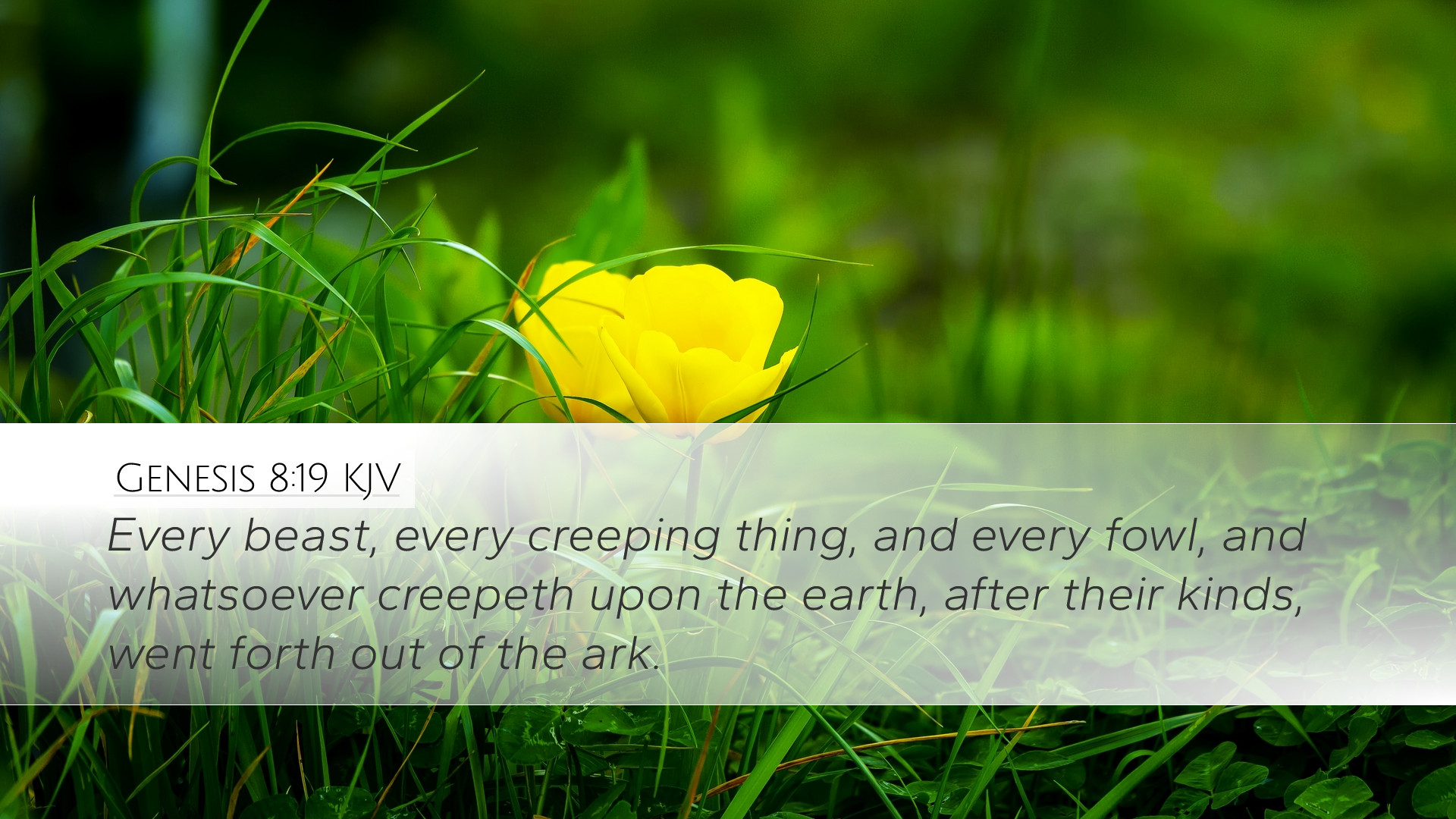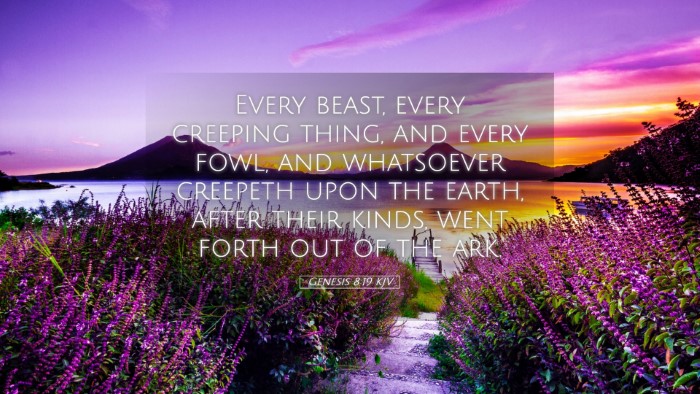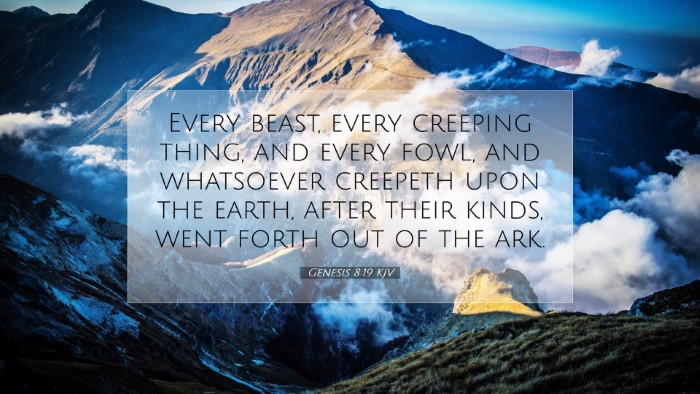Genesis 8:19 Commentary
Verse Text: "Every beast, every creeping thing, and every fowl, and whatsoever creepeth upon the earth after their kinds went forth out of the ark."
Introduction
This verse marks a significant moment in the narrative of the great Flood in Genesis. It underscores the divine mercy of God in preserving not just Noah and his family, but also a remnant of creation itself. The careful orchestration of the animals' departure from the ark serves to signal a new beginning and restoration of life on Earth.
The Significance of the Animals' Departure
Matthew Henry comments that the release of the animals from the ark reflects God's providential care and the continuation of life after judgment. The animals were not simply passengers; they bore the responsibility of populating the earth once again. Here, we see God's forethought and design in maintaining His creation despite the previous judgment.
1. A Divine Reestablishment
Albert Barnes emphasizes that the phrase "after their kinds" is intentional. It points to the orderliness of God’s creation and His intention for life to continue in a structured manner post-Flood. This specificity also speaks to the preservation of biodiversity, indicating that each kind is to reproduce according to its Creator's design.
2. Restoration of Creation
Adam Clarke notes that with the departure of the animals, we see a restoration of God's original command to humans and animals to "be fruitful and multiply, and replenish the earth." This signifies a fresh start not just for mankind but for all living creatures.
Contextual Analysis
1. Covenant Relationship
Matthew Henry observes that the emergence of these creatures from the ark lays the groundwork for God's covenant with Noah (Genesis 9:8-17). It mirrors the theme of salvation and covenant that flows throughout Scripture. Just as Noah started anew, so does God's promise to never again destroy the earth with a flood.
2. The Role of Humanity and Creation
Barnes reminds us of humanity's stewardship role in God's creation. This verse indirectly warns us of our responsibility towards the environment. As creatures of responsibility, we must ensure the wellbeing of creation as a reflection of our relationship with the Creator.
Applications for Today
From Genesis 8:19, there are several takeaways applicable to contemporary Christian life:
- The Cycle of Judgment and Mercy: It highlights God's judgment but equally emphasizes His mercy. Believers should recognize the significance of grace following difficult times.
- Stewardship of Creation: There is a biblical mandate to care for creation. This verse serves as a reminder of God's design and order that should be respected and cultivated.
- New Beginnings: Just as Noah’s family and the animals emerged into a new world, Christians today are invited to embrace new beginnings in Christ, reflecting the transformative power of God’s mercy.
Conclusion
Genesis 8:19 is not merely a recounting of the animals leaving the ark; it encapsulates God's faithful promise to His creation. The careful restoration of life post-Flood reflects the theological truths of God’s sovereignty, mercy, and the intricate design within His creation. As pastors, students, theologians, and scholars study this verse, may they be reminded of the profound significance behind the narrative and its implications for living a life in fidelity to God's commands.


